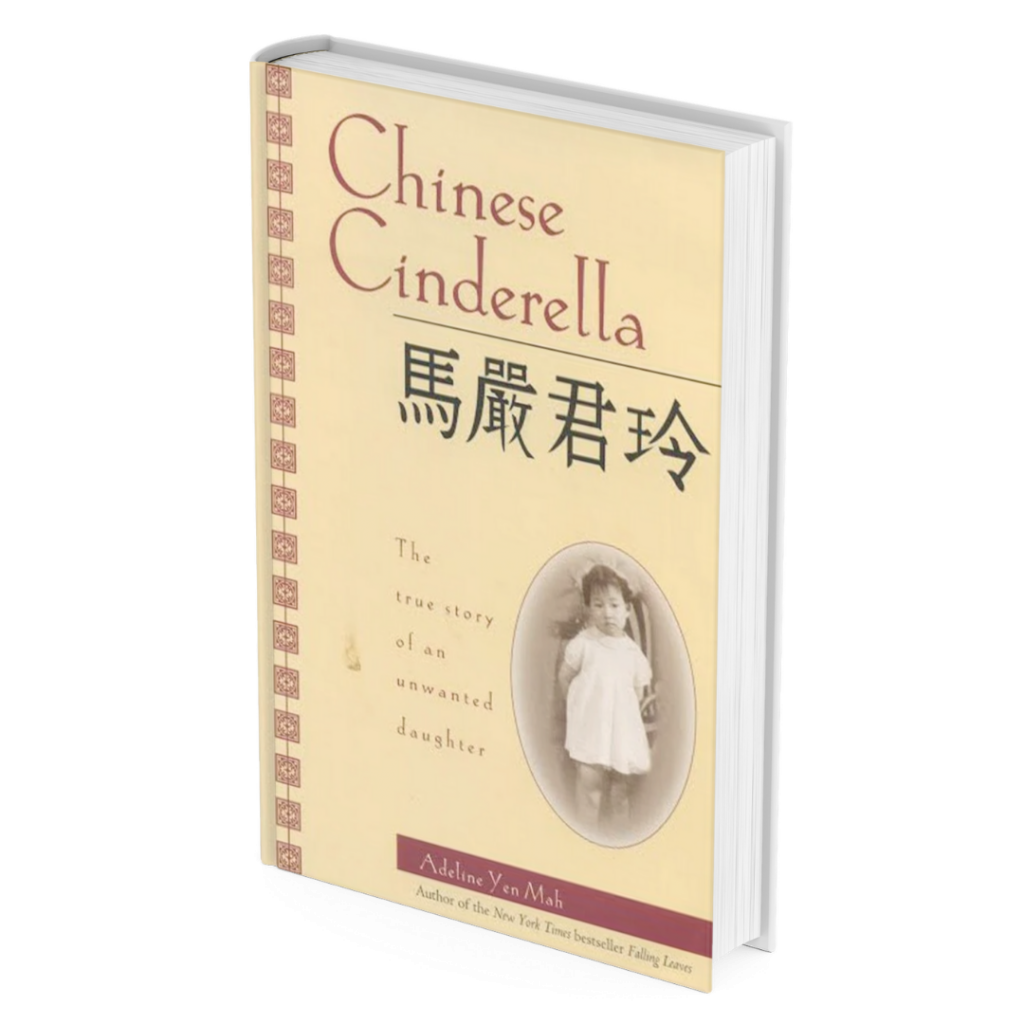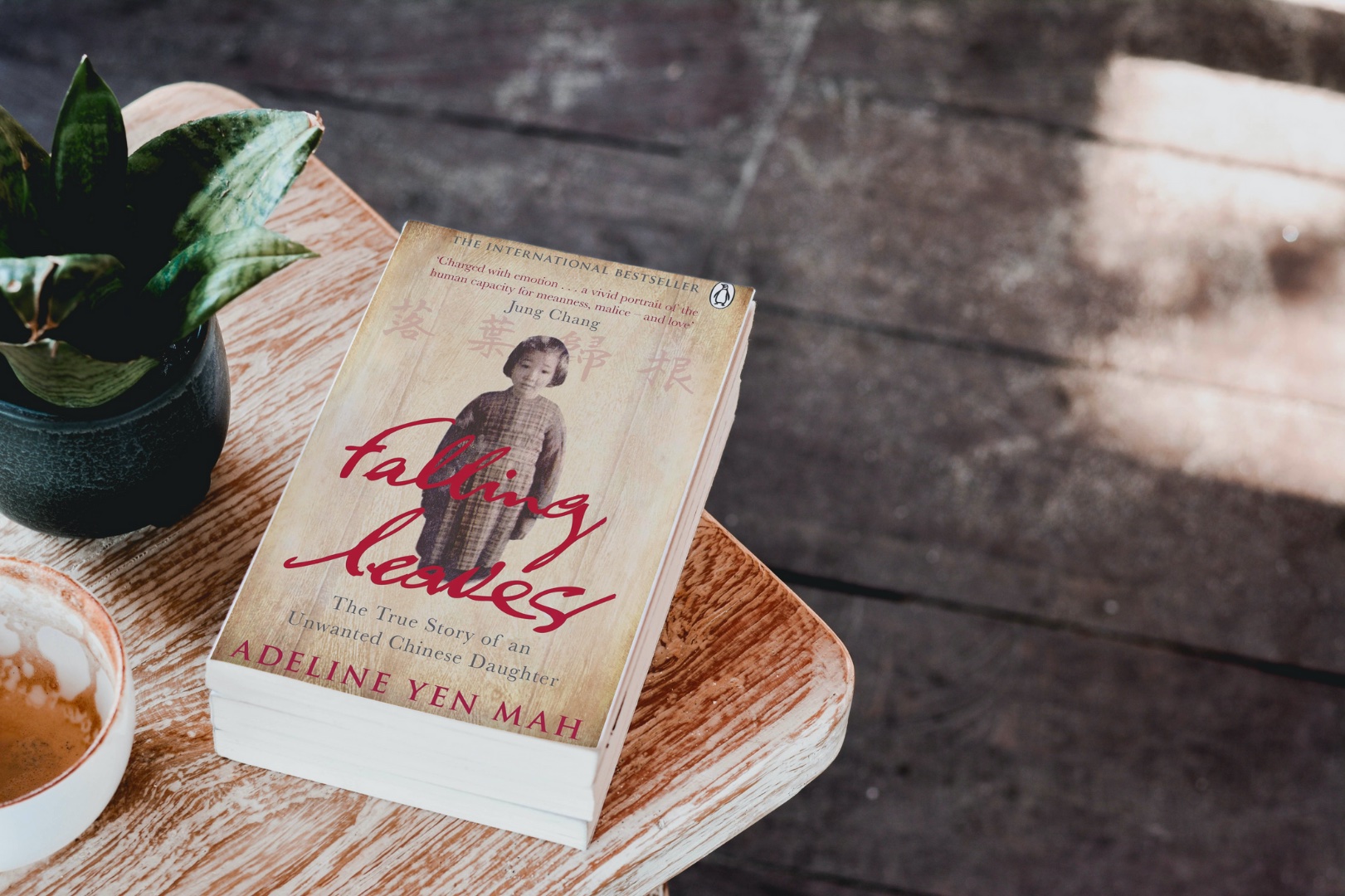Written by Nikka Gan
Edited by Regiena Siy
As the old Chinese saying goes, “树高千丈,落叶归根” (shu gao qian zhang, luo ye gui gen). When translated to English, it says, “Trees are thousands of feet high, and leaves return to their roots.” The poem, which inspired the title of Adeline Yen Mah’s book, is about how a person who leaves their hometown will always somehow find their way back in the end.
Falling Leaves: The Memoir of an Unwanted Chinese Daughter recounts the true story of a sad and often lonely childhood of a young girl in China. Adeline Yen Mah was born in 1937 in Tianjin, Shanghai. Her mother passed away two weeks after her birth, and because of this, she was seen as bad luck to the family. Later, when her father, a wealthy businessman, married a young half-Chinese, half-French woman whom Adeline calls “Niang” (娘), the young Adeline’s life took a turn for the worse. Her siblings already disliked her for being the reason for their mother’s death, and the rift between them grew even bigger after their manipulative step-mother became the head of the household. When her father and step-mother had two more children, Adeline, her siblings, her grandfather, and her aunt were all treated as almost “second class” people within their home. Filled with emotional and sometimes even physical abuse, Adeline’s life story truly is that of a modern-day Cinderella. This, in fact, is the name of her other book “Chinese Cinderella,” also a memoir of her childhood but told in a way that would be easy for children and teenagers to read.

“At the age of three my grand aunt proclaimed her independence by categorically refusing to have her feet bound, resolutely tearing off the bandages as fast as they were applied.”
While reading the book, you’ll come to realize that this story is not only of Adeline’s childhood, but also of China’s history as seen through the eyes of a Chinese girl. As she grows to become a successful woman, you also get to see China grow from conceding to foreign powers to the establishment of the People’s Republic of China. Not only does this book show Adeline’s complicated relationship with her family, it also discusses her equally complicated relationship with her home country, China. Coupled with her desire to receive love from her parents is her yearning to love the country where she had suffered her whole childhood. The complexities of Chinese culture and history had a heavy presence in their family’s story, such as having to move businesses and homes because of the Japanese colonization and the civil war. Moreover, the book explains to the reader the traditions of a conservative Chinese home through Adeline’s almost dysfunctional family. The problematic traditions such as foot-binding and arranged marriage are only some of the things that Adeline had seen or experienced first-hand. Unfortunately, some of the traditions and beliefs in her childhood still continue on in China today, even in the subtlest forms. Additionally, as Adeline made her way into the academic and medical worlds of England and America, she then faced discrimination as a Chinese woman in a white male-dominated field. Because of this, Falling Leaves is a must-read book regardless of what generation you belong to, as this is not just the story of Adeline, but the story of thousands of women all throughout history.
“That’s exactly what I’ll do, I thought to myself. After dinner, I’m going to ask Big Brother to teach me how to read this map. With Aunt Baba still in Tianjin, there’s obviously nobody looking out for me. I’ll just have to find my own way.”
In the beginning of the book, Adeline and her siblings attend their father’s funeral, about to read his will. To their surprise, their step-mother tells them that he had left nothing for any of his children. This was a hard-hitting introduction to the story, hinting that the trauma in her life does not leave her even after she has already become a successful doctor. Adeline Yen Mah is a truly inspiring woman. Her reluctance to fall into the folds of her parents’ abuse and to keep motivating herself to create her own life and future is something you can look up to. Similarly, her discussion of filial piety and the constant need to receive your parents’ approval no matter how they treated you in the past is a heart-wrenching revelation and testament to the culture of Chinese families that is still prevalent to this day.
This is a highly recommended read for anyone looking for a short non-fiction book to pass the time with. Other than the inspiring story that you will get from this, you also get to learn so much about the history of China during the 20th century. Adeline Yen Mah does a great job of transporting you into the body of her younger self as she traversed through the difficulties of being an unwanted daughter. Her writing can make readers experience the same innocence, goodness, yearning, and desperation that she herself had felt all throughout her life. And even though you may not be a cinderella, you might still find yourself relating to the quiet and intelligent little girl in Shanghai hoping for a future full of love and acceptance.
This article is brought to you by the Communications and Publications department of Ateneo Celadon and Elements Magazine on Facebook: https://www.facebook.com/CeladonElementsMagazine




